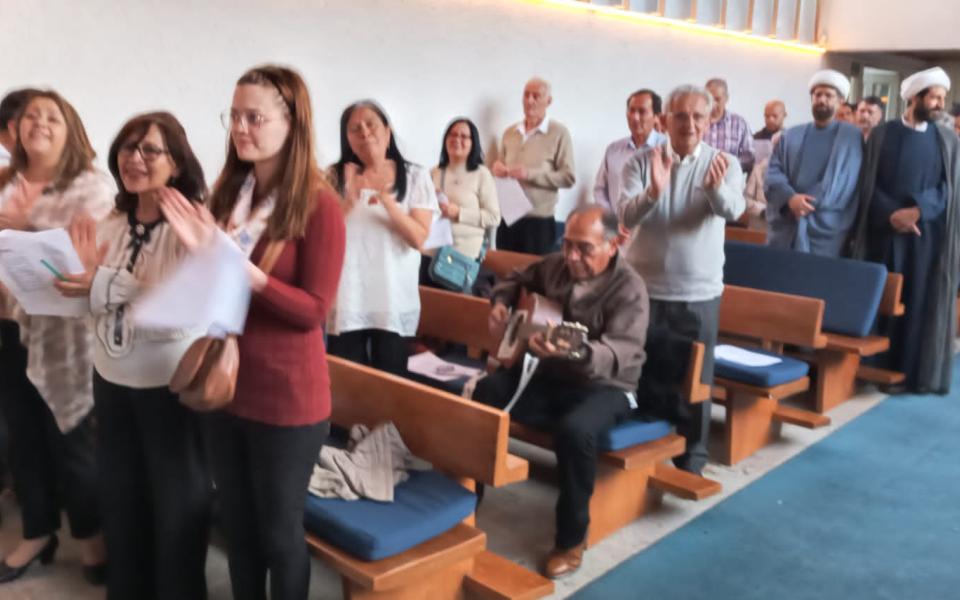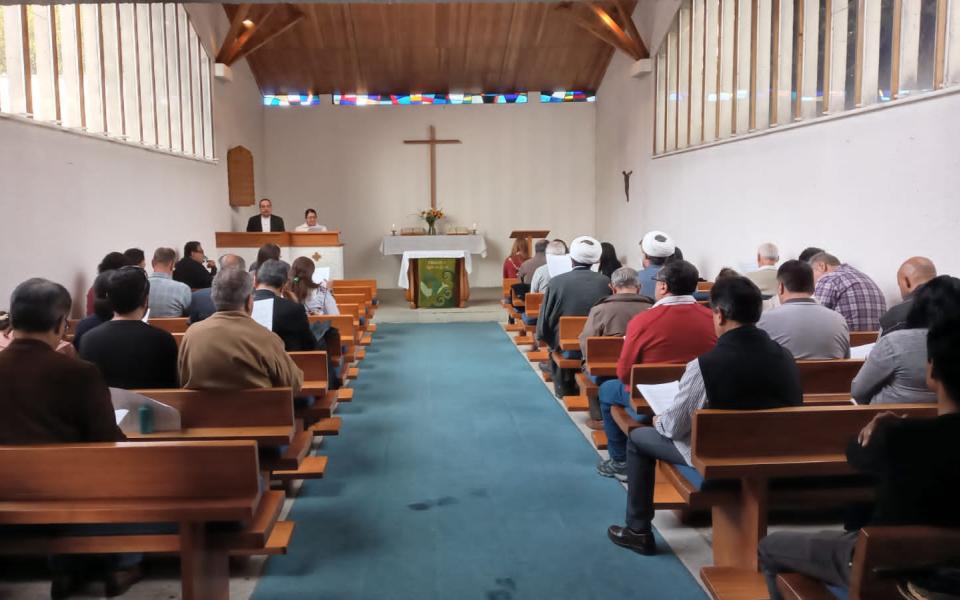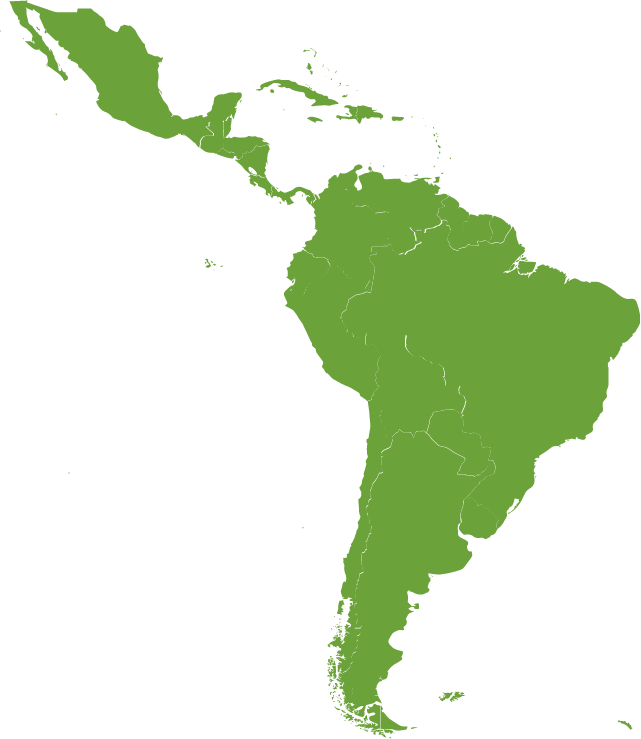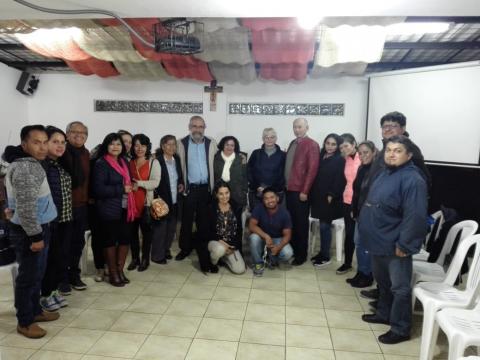

In January 1997, the Week of Prayer for Christian Unity was held in Quito for the first time. This initiative was promoted by the Ecuadorian Episcopal Conference and the Latin American Council of Churches. Only two celebrations were held, one in a Catholic Church and the other in a Protestant church. As the days passed we met some people who had participated in these two liturgies and we confirmed that it had been an excellent experience of unity and fellowship and we thought that this process had to be continued. For this reason, we convened to meet again and form what we call the Ecumenical Fraternity, which would be the organization that would give continuity to subsequent activities and not only to organize the weeks of prayer that take place every year. This meeting was held in March of that year at the New Life Baptist Church, which at that time he was pastoring. This convocation was attended by: Bishop Julio Terán Dutari, the Franciscan priest Luis Cabrera, current Archbishop of Guayaquil and president of the Episcopal Conference, the former Secretary General of CLAI, Pastor Felipe Adolf, Pastors Walter Manzo, Víctor Rey, evangelical laymen Carlos Pinto, Manuel Quinteros, Hernán Merino and the Catholic layman David Silva. One of the first agreements was to meet monthly inviting new priests, pastors and laity to join this new movement and this is how the ecumenical breakfasts that are held to this day in different churches and Christian organizations were born.
CHURCHES AND INSTITUTIONS THAT HAVE SUPPORTED ECUMENICAL FRATERNITY.
Since its inception, the Catholic Church has supported through the Episcopal Conference or the Archbishopric of Quito. And in the Catholic lay world, the support and presence of the Folclore up to now has been fundamental. On the Protestant side, it has been the Protestant or historical churches such as the Lutheran, the Episcopalian, and the Methodist. At first some evangelical churches were present but then they moved away like the Baptists, the Assemblies of God and others. Evangelical support came through evangelical leaders who ran para-church or interdenominational institutions such as the Bible Society, MAP International, World Vision, the New Life Foundation. The organization that he supported from the beginning and with great force was The Latin American Council of Churches CLAI. Product of the worldwide changes in the political, social, ecclesiastical and cultural aspects, many of these organizations have weakened or have ceased to exist and have lost their influence or presence. This shows that to a great extent ecumenism has ceased to be institutional and has become an ecumenism of people and a movement.
THE PRESENT AND THE FUTURE OF ECUMENICAL FRATERNITY
A few years ago, the Brazilian theologian Leonardo Boff said: "Whoever does not understand that the world has changed, does not understand anything." And that is precisely what has happened more or less since the fall of the Berlin Wall, when the Cold War ended and later when we entered the 21st century. Since that date we have witnessed how institutions have been collapsing and Western culture is in question. The scenario has changed and the churches and religions must take note of this. Many of the things we did, the strategies we used, theories and theologies that we defended over time and the circumstances of the new context have been left behind and no longer respond and are no longer relevant to the new reality. Therefore the Ecumenical Fraternity and the ecumenical movement must reinvent itself and become creative in this time and in what is to come. Fortunately, ecumenism is a movement of the Spirit and what the Spirit has most is to be creative and innovative. Therefore there is hope in what is to come, what remains for us is to be docile to the voice and designs of the Spirit.
THE MISSION AND THE CHALLENGES THAT THE ECUMENICAL FRATERNITY FACES TODAY: "The context we live in today is very different from that of the 20th century, when the Fraternity was born. The world has changed, new technologies have been imposed, traditional values have been questioned , violence and corruption stalk us. It seems that our societies have become more atheistic, hedonistic and nihilistic. And the churches and religions have lost their ethical force and their prophetic voice. For this reason, the task of the Fraternity today more than ever It is urgent that you must raise your voice to denounce injustices, announce the Gospel of the Kingdom of God, defend Human Rights, inclusion and diversity, promote unity and Inter Religious encounter, defend religious freedom and freedom of conscience, the secular state , the defense of democracy, the defense of the environment and natural resources and of course promoting and living PEACE."
Victor Rey

